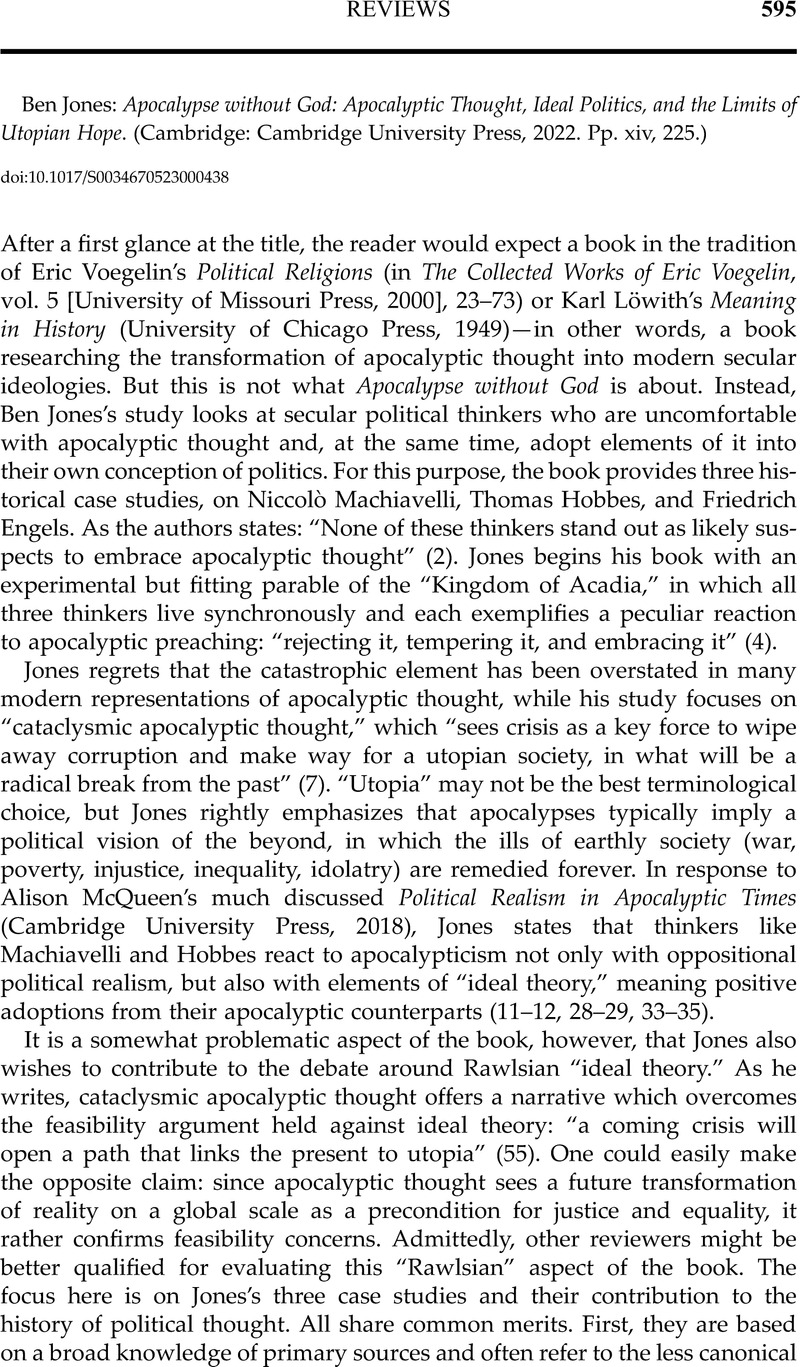No CrossRef data available.
Article contents
Ben Jones: Apocalypse without God: Apocalyptic Thought, Ideal Politics, and the Limits of Utopian Hope. (Cambridge: Cambridge University Press, 2022. Pp. xiv, 225.)
Review products
Ben Jones: Apocalypse without God: Apocalyptic Thought, Ideal Politics, and the Limits of Utopian Hope. (Cambridge: Cambridge University Press, 2022. Pp. xiv, 225.)
Published online by Cambridge University Press: 22 August 2023
Abstract
An abstract is not available for this content so a preview has been provided. Please use the Get access link above for information on how to access this content.

- Type
- Book Review
- Information
- The Review of Politics , Volume 85 , Special Issue 4: Part II of The Crowd in the History of Political Thought: A Symposium on Populism , Fall 2023 , pp. 595 - 597
- Copyright
- Copyright © The Author(s), 2023. Published by Cambridge University Press on behalf of The University of Notre Dame.


